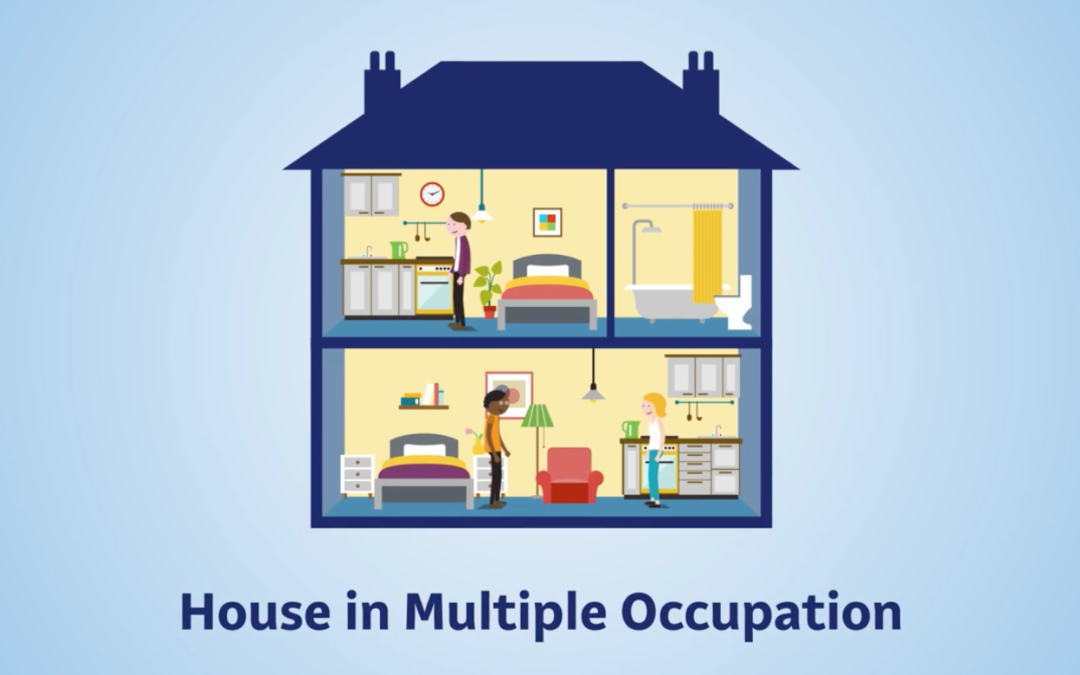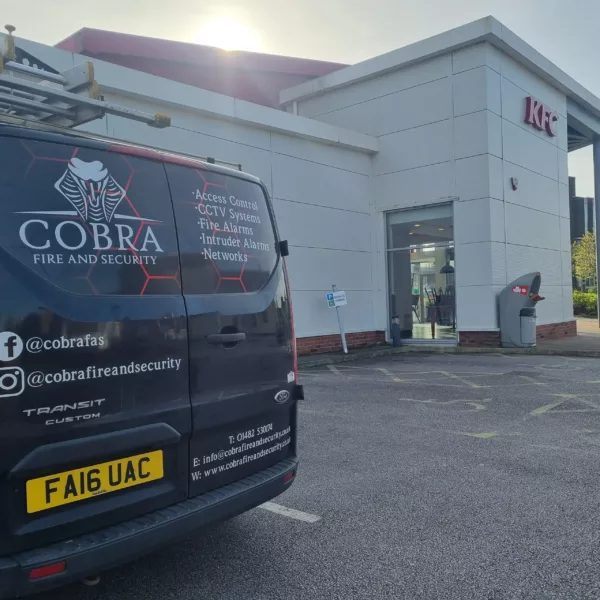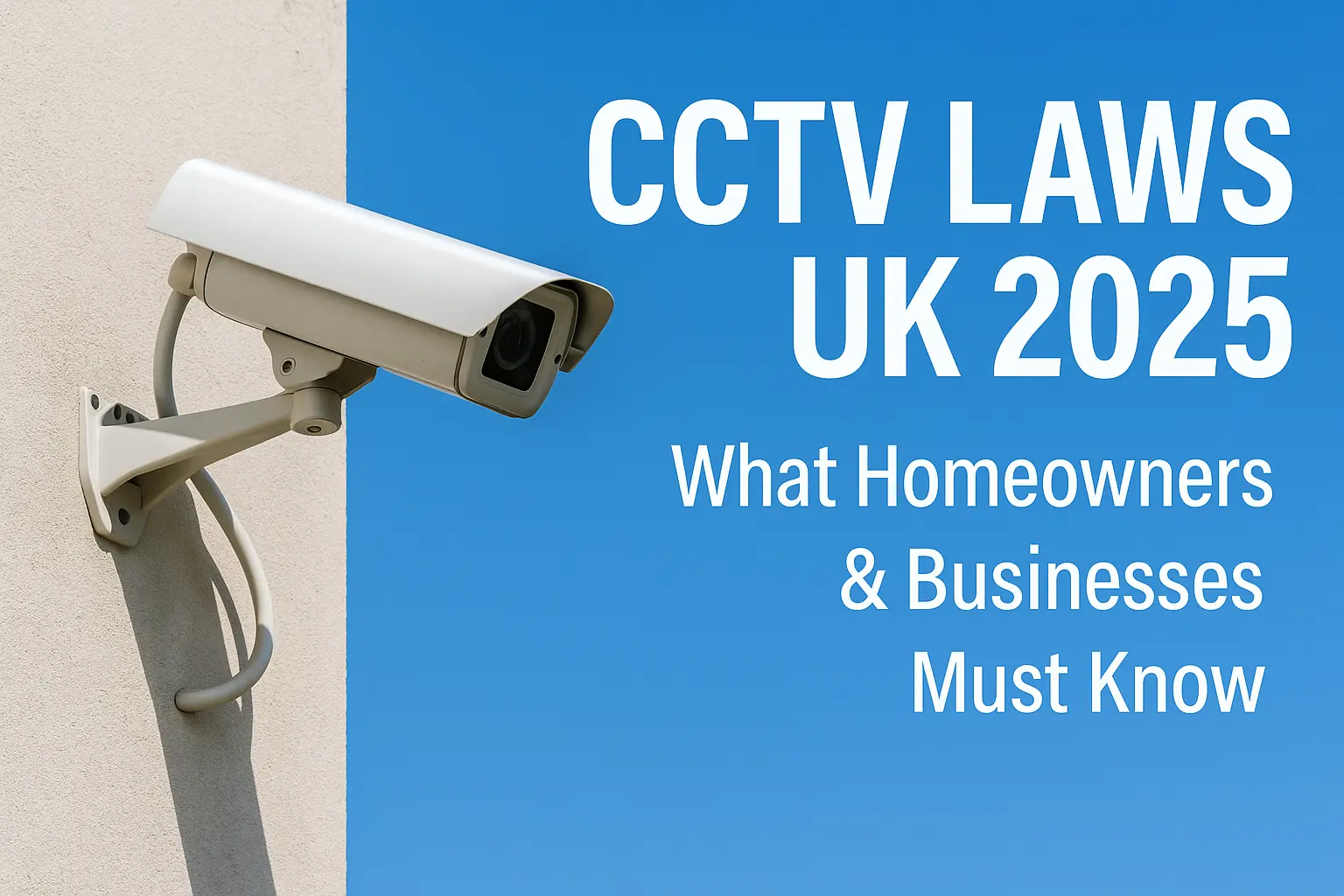
What is an HMO and do they need Fire Alarms?
HMO stands for House in Multiple Occupation, which is a type of rental property where three or more people who are not from the same household share some facilities, such as a kitchen or a bathroom. Examples of HMOs include shared houses, flats, and student accommodation.
Because HMOs are home to multiple people, there are greater risks associated with fire safety. For example, there may be more sources of ignition, such as cooking appliances or electrical devices, which increases the risk of a fire breaking out. Additionally, with multiple occupants, there may be more obstacles to escape in the event of a fire, such as blocked exit routes or insufficient fire exits.
Therefore, it is essential to consider fire safety when managing HMOs. One important aspect of fire safety in HMOs is the installation of appropriate fire alarm systems, which can detect fires and alert occupants to evacuate the building. In the rest of the blog post, we will explore the legal requirements for fire alarms in HMOs and the benefits of having them installed.
What is a Fire Alarm?
A fire alarm is a system designed to detect and alert people to the presence of a fire. The system usually consists of a network of sensors or detectors that are connected to a control panel. When a fire is detected, the sensors send a signal to the control panel, which triggers an alarm to sound and/or a signal to be sent to the local fire department.
Fire alarms come in different types, each with its own advantages and disadvantages. Here are some of the most common types of fire alarms:
- Ionisation alarms: These alarms detect fast-burning fires, such as those caused by paper or gasoline.
- Photoelectric alarms: These alarms detect smouldering fires, such as those caused by cigarettes or faulty wiring.
- Combination alarms: These alarms combine both ionisation and photoelectric sensors to detect both fast-burning and smouldering fires.
- Heat alarms: These alarms detect heat and are useful in areas where smoke detectors may not be appropriate, such as in kitchens or garages.
Fire alarms may be battery-operated or hardwired into the building’s electrical system. Some alarms may also include features such as strobe lights or voice alerts to aid people with hearing impairments.
Legal Requirements for HMO Fire Alarms
In the UK, HMOs are subject to specific regulations designed to ensure the safety of tenants. These regulations include requirements for fire safety, which apply to all HMOs, regardless of their size or the number of occupants.
The specific legal requirements for fire alarms in HMOs are set out in the Housing Act 2004 and the Regulatory Reform (Fire Safety) Order 2005. These regulations require that:
- Smoke alarms must be installed on every storey of the property where there is a room used wholly or partly as living accommodation. These alarms must be mains-powered and interlinked so that if one alarm sounds, they all sound.
- A carbon monoxide alarm must be installed in any room where there is a solid fuel-burning appliance, such as a coal fire or wood-burning stove.
- The fire alarms and carbon monoxide alarms must be tested and checked on the day the tenancy begins to ensure they are working properly. After that, tenants are responsible for regularly testing the alarms and notifying the landlord or agent of any defects.
- The landlord must maintain the alarms and ensure they are in proper working order throughout the tenancy.
Non-compliance with these legal requirements can result in severe penalties, including fines and imprisonment.
It is worth noting that some local authorities may have additional requirements for fire safety in HMOs, so it is essential to check with the relevant authority to ensure full compliance.
Benefits of Installing a Fire Alarm in an HMO
As a landlord or property manager of an HMO, ensuring the safety of your tenants is of utmost importance. One key aspect of fire safety in HMOs is installing a fire alarm. Not only is this a legal requirement in the UK, but it also provides several benefits for you and your tenants.
By installing a fire alarm, you can detect fires in their early stages, allowing for quick evacuation and a faster response from the fire department. This can reduce the risk of injury and damage to the property and provide peace of mind for tenants, knowing they are living in a safe and secure environment.
Moreover, having a fire alarm can help you comply with legal requirements, potentially lower insurance premiums, and increase the overall value of your property. Insurance companies tend to offer lower premiums to landlords who have installed fire alarms in their properties, as they can reduce the risk of damage and injury, which can result in lower insurance claims.
However, it is important to note that fire alarms are just one aspect of fire safety in HMOs. Other measures, such as ensuring adequate escape routes and providing fire extinguishers, should also be considered to enhance fire safety.
In summary, installing a fire alarm in an HMO is crucial for ensuring the safety of tenants, complying with legal requirements, and providing several benefits for landlords and property managers. By prioritising fire safety measures, you can create a safe and comfortable living environment for your tenants while also protecting your property and investment.
Choosing the correct fire alarm
When it comes to choosing a fire alarm for your HMO, there are a few different options to consider. These include ionisation smoke detectors, which are good at detecting flaming fires, and photoelectric smoke detectors, which are better at detecting smouldering fires.
Heat detectos are another type of fire alarm to consider, especially if you have a kitchen or other area where smoke alarms might be prone to false alarms. Finally, you might also want to consider installing a combination smoke and carbon monoxide alarm for added protection.
When choosing a fire alarm, it’s important to think about the specific needs of your property and tenants. For example, if you have smokers or a history of cooking-related fires, you might want to opt for a combination of ionisation and photoelectric smoke detectors.
Once you’ve chosen the right fire alarms for your HMO, it’s important to make sure they’re installed in the right locations and connected to one another. This way, if one alarm goes off, all of the alarms in the building will be triggered, alerting everyone to the presence of a fire.
In summary, choosing the right fire alarm for your HMO is an important decision that can help protect your property and your tenants. By considering the specific needs of your property and installing the alarms correctly, you can help ensure that everyone stays safe in the event of a fire.
Installation and Maintenance of Fire Alarms in HMOs
After selecting the appropriate fire alarms for your HMO, the next step is to ensure that they are installed correctly and well-maintained. This involves several key steps, including:
- Professional installation: It is essential to have a professional install your fire alarms to ensure that they are correctly placed and connected. The installer should follow the manufacturer’s guidelines for installation and wiring to ensure that the alarms work together and are connected to the building’s power supply.
- Regular testing: Fire alarms should be tested regularly to ensure that they are functioning correctly. The manufacturer’s guidelines typically recommend testing the alarms once a month. During the test, the alarm should be triggered to make sure that the sound is loud enough to alert tenants throughout the building.
- Regular maintenance: In addition to regular testing, fire alarms should also be maintained regularly to ensure that they continue to function properly. This can include cleaning the alarms to remove dust and debris, replacing batteries, and replacing the entire alarm unit if it is damaged or no longer functioning properly.
- Record-keeping: It’s important to keep detailed records of when the alarms were installed, tested, and maintained. This information can be helpful in demonstrating compliance with fire safety regulations and can also be useful in the event of a fire investigation.
By ensuring that your fire alarms are installed correctly and well-maintained, you can help ensure that they will function properly in the event of a fire. Regular testing and maintenance can also help identify any issues before they become a serious problem, potentially saving lives and minimising property damage.
In conclusion, fire safety is essential in any property, but particularly in HMOs where multiple tenants share the same building. Installing and maintaining fire alarms is crucial to ensuring that tenants are alerted in the event of a fire and can evacuate the building safely. When selecting fire alarms for your HMO, consider the size and layout of the building, the type of occupants, and any local fire safety regulations. Once you’ve selected the appropriate fire alarms, it’s important to have them installed professionally and tested regularly to ensure they are functioning correctly. Regular maintenance and record-keeping can help ensure that the fire alarms continue to work effectively and can help demonstrate compliance with fire safety regulations. By prioritising fire safety and taking appropriate measures to prevent and respond to fires, landlords and property managers can help keep their tenants safe and protect their property.
At Cobra Fire and Security, we offer comprehensive support throughout the entire process, from design to testing and inspection. If you require assistance with fire alarm installation or fire alarm testing and inspection, please don’t hesitate to reach out to us.
Reviewed: 08/05/2023 Our articles are reviewed regularly. However, any changes made to standards or legislation following the review date will not have been considered. Please note that we provide abridged, easy-to-understand guidance. To make detailed decisions about your fire safety provisions, you might require further advice or need to consult the full standards and legislation.
Share this article
Written by : Michael Winter
Follow us
Latest articles
February 17, 2026
February 17, 2026
February 17, 2026





